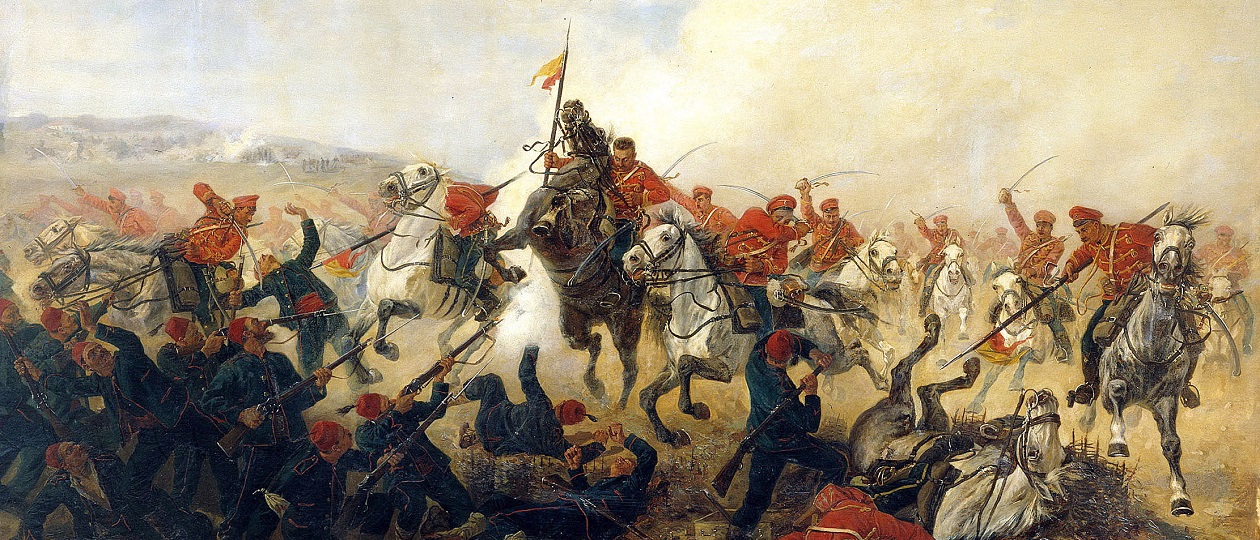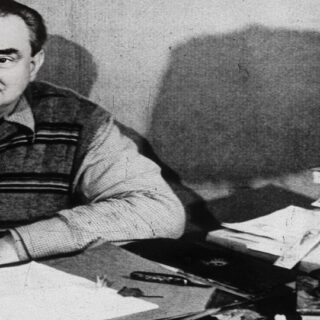
What a strange deja vu one experiences reading Tchaikovsky’s letters provoked by Russian confrontation with Ottoman Empire in defense of Bulgarians and Serbs, butchered by the Turks for their rebellion.
For a while, western press, led by British, didn’t want to hear anything bad about Turks or anything good about their victims or the Russians who wanted to protect them.
Luckily, a courageous American journalist, Januarius Aloysius MacGahan, began to report both for American and British liberal newspapers about the reality on the ground. His descriptions of the remains of 3,000 Bulgarians butchered by Ottomans in the town of Batak were so moving that they galvanized William Gladstone — Jimmy Carter of his day — to publish in September of 1876 pamphlet, “The Bulgarian Horrors and the Question of the East.” That eventually changed the public opinion, forcing Brits to withdraw from the impending war with Russia on the side of Turks, and enabling Gladstone to unseat Disraeli’s Tories — the chief drivers of the pro-Ottoman policies — in 1880.
Below are Tchaikovsky’s comments on his experience with European Russophobia when British pro-Ottoman anti-Russian hysteria was still in full bloom, taken from Tchaikovsky’s letters to his benefactor, Nadezhda von Meck:
“It appears to me that now, when I am less distracted by my personal grief from the communal one, I can feel the wounds inflicted upon our beloved country more acutely. I have no doubt that eventually Russia and the Slavic World in general would carry the day, at least because what we have on our side justice, truth, and honor, while on the side of our enemies, that is, Englishmen — nothing but the selfishness, merchant calculations and lack of compassion. Oh, God, how much I hate this revolting tribe, especially after the books which reveal all the baseness of British administration in India. I am very happy that during the war I’ll be in Russia. I had to experience plenty of unpleasant moments here abroad, witnessing the malicious joy that the news of our even tiny misfortunes produce, and real malice when our side was victorious.” (March 14, 1878)
“How would our confrontation with England end? I’d love to hope that our government wouldn’t surrender and wouldn’t insult our national feelings by concessions to our hateful enemies. How unanimously Europe hates us. Here in Switzerland, one expects this small neutral country to be fair and objective. And yet, “Journal de Geneve” which constitutes my daily reading, along with other Swiss papers which I happened to read, echo the British, admire Salisbury’s directive and demand Russian surrender. I won’t even say a word about French, which is fuming against us with the energy of the British. I can’t pick up a single French paper without throwing it away in disgust.” (March 28, 1878)
“You know what drives me insane here in Venice? — the evening papers salesmen. When you take a stroll on St. Mark square from all sides you here: “Il Tempo,” “La gazetta di Venezia,” Vittoria di Turchi (Turkish victory).” You hear this Vittoria di Turchi every evening. Why don’t they scream about our real victories, while trying to attract the readers with the stories of fake Turkish ones?
Yesterday, I addressed one of those screamers: “where do you see Turkish victory?” Turned out he was referring to some Turkish maneuver, during which — allegedly — several hundreds of Russians were killed. But where do you see victory, I persisted. I could not understand his answer, but at least he stopped screaming “Turkish victory” every night….
When will this awful war end? The war in which such a terrible price is paid for such negligible results. And yet, we have to fight till the enemy is defeated to the end. This war can’t end on compromises and mutual concessions. It should be victory of either one or another side. And yet, it is embarrassing to demand this fight to the end, to the last drop of blood, when you sit in a comfortable room full of light, protected from elements, hunger, and physical suffering. Of course, nobody is saved from moral suffering.” (18 November 1877)





